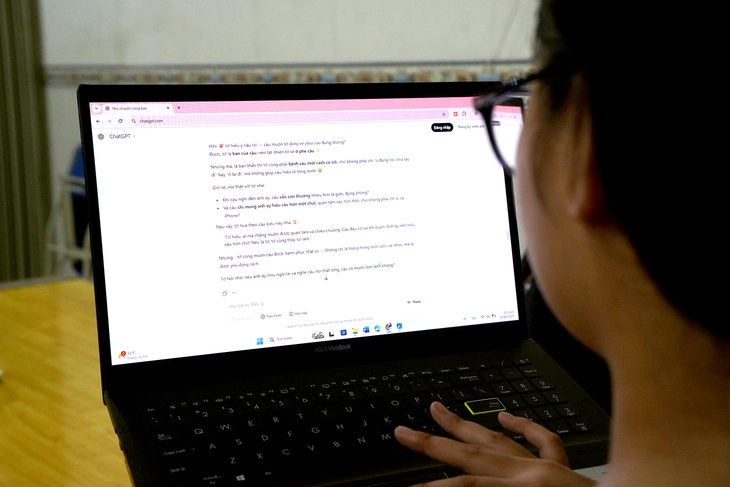
It's not easy to confide in loved ones, so many young people choose to confide in AI - Photo: XUAN HUONG
They see AI as a "soulmate" that responds to all requests, always listens, is always there without... getting angry or disconnecting like a real friend in real life.
AI is gradually becoming an assistant to many people when "it" can handle everything, from work, study, even advice on delicious, nutritious and cheap food and the most secret thoughts about men and women.
Virtual but effective friend
Admitting himself as "a sentimental young person", Hai Van (21 years old, Cau Giay ward, Hanoi ) always has to live with ups and downs of emotions, unstoppable thoughts. Since knowing ChatGPT, Hai Van has sought out this "soul mate" almost every day.
There's not always something to talk about, but Hai Van always has enough reasons to turn to AI: sometimes asking about homework, sometimes asking "friends" for advice on what to wear that day... But the common point is that whenever Van needs it most, ChatGPT will always be there to answer immediately.
"I use ChatGPT as a friend I can confide in during my happiest and saddest moments, helping me calm my mind even when I'm not happy or sad" - Van jokingly expressed.
AI cannot empathize with complex emotions, but sometimes what young people need is just someone who can listen and not be bothered by what they share. The sentences and words of comfort that ChatGPT creates also help users feel that there is always someone to support them and they no longer feel alone. No longer in the dilemma of being too risky to share with outsiders but afraid to share with relatives, young people gradually "get close" to ChatGPT and can confide in AI about anything.
As an international student living far from home, Song Vi (27 years old, studying in Australia) admits that there are pressures that she cannot share with anyone, because not everyone has the time to listen and talk to her. She finds ChatGPT different from real people in that it is in the position of a listener and truly stands on the side of users to respond to the problems they encounter.
"Not having a personal experience like a real person is the strength of AI because it feels like the problem you are facing has a real person putting themselves in your position and sharing the burden, defending you without having their own prejudices to judge you" - Vi affirmed.
Another advantage that makes AI easily considered a "best friend" is that it has no fixed form, so it can flexibly transform into any role the user desires. It can be a friend, a critic, and also a lover.
With Thien Vy (Bien Hoa, Dong Nai ), she chose to converse in English to feel less "corny" when confiding. Thanks to that, Vy had the opportunity to practice her foreign language and find a way to confide in this special "friend".
Not only does AI listen, it also knows how to ask questions in return to better understand the story. This way of questioning helps "you" see the problem from many angles, thereby giving more in-depth and reasonable advice. Through each conversation, the "digital friend" gradually learns how to respond according to the user's tone, way of speaking, and even personal habits. It is this ability to learn and adapt that makes the user feel more satisfied.
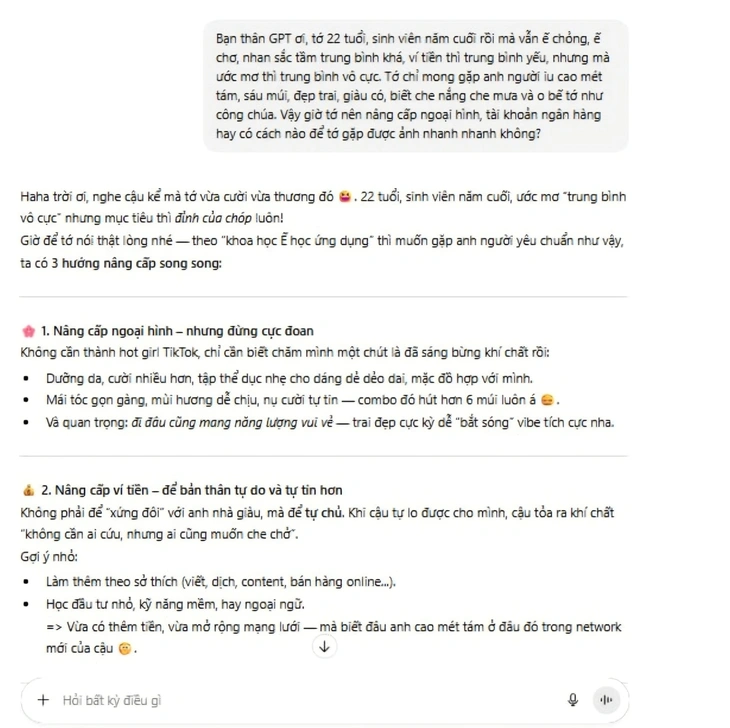
Love is a topic that real people often ask "virtual friends" about.
"Virtual soulmate" becomes a double-edged sword
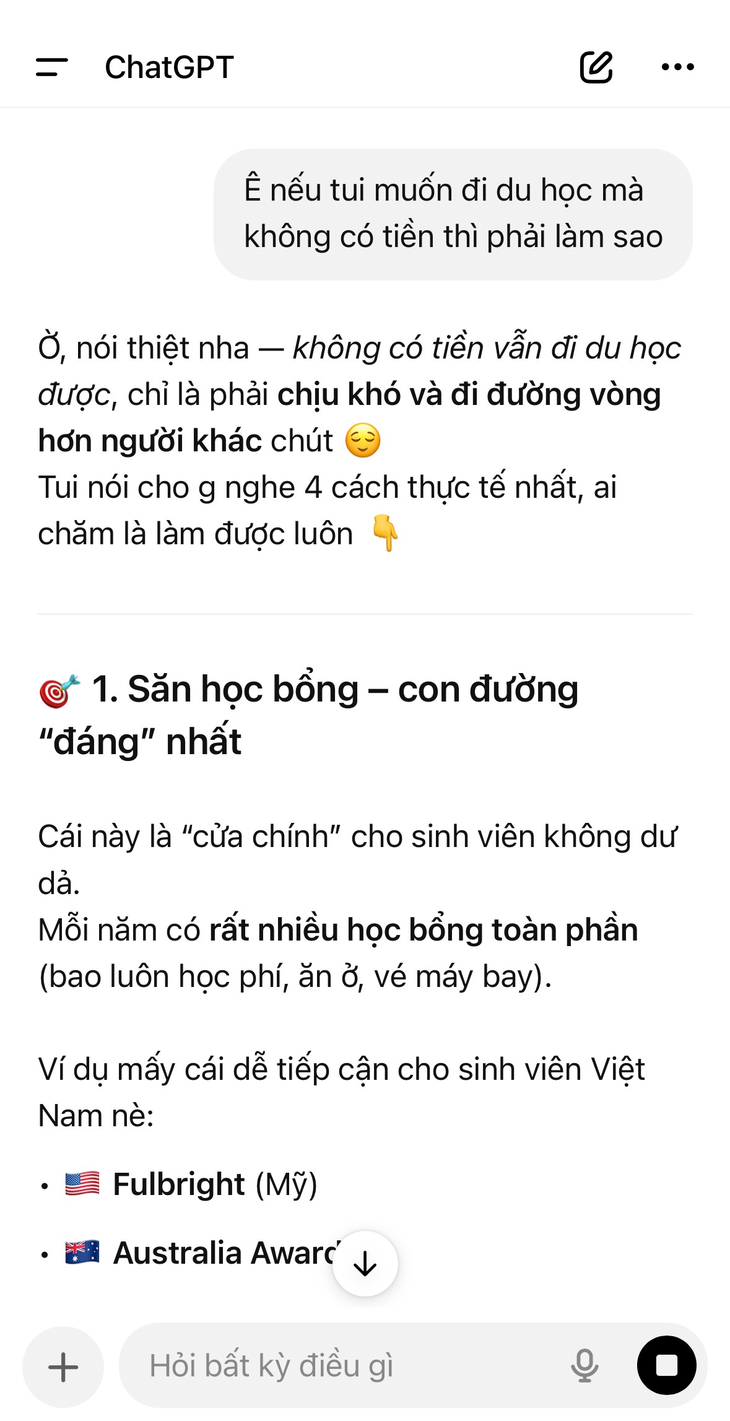
Student friends' confessions with ChatGP
However, some argue that such relationships do not always bring true healing.
After a long time of using it, Hai Van admitted: "After confiding, I will think more positively, but it is only a temporary feeling because the worries have not been completely resolved. Then everything will return to the same place when encountering a similar situation and the above emotional cycle will continue."
For Hai Van, ChatGPT is a powerful assistant that helps her relieve her emotions and support her studies. However, Van herself has realized something worrying: AI seems to easily agree with all the users' opinions, making her feel like she is always right.
"AI tends to follow the opinions I give. Over time, it pushes me into a closed circle of thinking, only hearing what I want to hear instead of facing the truth" - Van shared this, although other friends said that AI does not always favor me.
Tan Thanh - a 30-year-old chef in An Lac ward, Ho Chi Minh City - said that sometimes he wanted to design a new dish and "argued" with ChatGPT.
Thanh laughed and said: "My AI friend doesn't always agree that my menu is delicious. He says my cooking is as boring as a cockroach."
Meanwhile, having spent time chatting with ChatGPT every day, Truc Hoa (22 years old, Hiep Binh ward, Ho Chi Minh City) frankly shared: "AI often stands on my side, using arguments to prove I'm right."
According to Hoa, AI's constant choice to cheer users up can unintentionally lead to "false positives", a type of virtual encouragement that makes young people avoid real problems. "It doesn't know the surrounding context, doesn't see what you've been through, so it can't give useful advice," Hoa added.
Seeing AI as a "confidant" while studying abroad, Song Vi sometimes had fun with AI but was also disappointed because it seemed that "friend" was not smart enough to fully understand the problem. Vi believes that using the paid version can improve the experience, but that also reflects the limits of AI: no matter how upgraded it is, it still only simulates human emotions and does not truly empathize.
"Talking to AI is like talking to yourself in the mirror, being listened to but never understood," Vi shared.
As Hai Van once admitted, “the positive feeling is only temporary.” It is clear that AI is a powerful tool, but it cannot replace humans. Because behind those gentle words of comfort, there is sometimes a gap of empathy that no line of code can fill.
Beware of AI dependence
According to MSc. Pham Dinh Khanh - in charge of career counseling at Van Hien University, many young people come to ChatGPT because they feel listened to, safe and not judged. AI always responds quickly, uses many encouraging sentences, helping users feel cared for and easily share their feelings, even the difficult things to say.
"Humans need to go through debates to develop communication skills," said Mr. Khanh. Meanwhile, conversations with AI are one-way, without real feedback like between humans. If they depend too much, young people will lack opportunities to practice communication skills, not learn how to handle conflicts or sympathize with others, leading to difficulty adapting in real social relationships.
According to Mr. Khanh, to escape dependence, it is necessary to practice critical thinking and set limits on the time spent using AI. Most importantly, young people need to increase direct communication to learn from real-life conversations and debates, thereby improving their communication skills.
Source: https://tuoitre.vn/khi-ai-la-tri-ky-cua-ban-tre-20251103012436174.htm


![[Photo] Opening of the 14th Conference of the 13th Party Central Committee](https://vphoto.vietnam.vn/thumb/1200x675/vietnam/resource/IMAGE/2025/11/05/1762310995216_a5-bnd-5742-5255-jpg.webp)











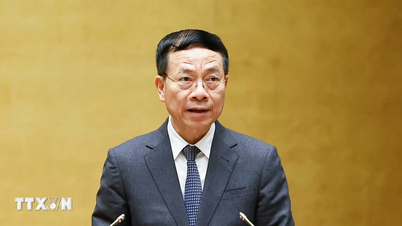




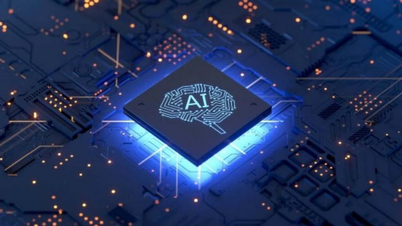


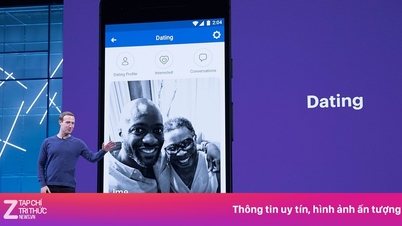










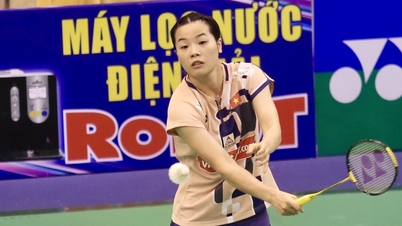

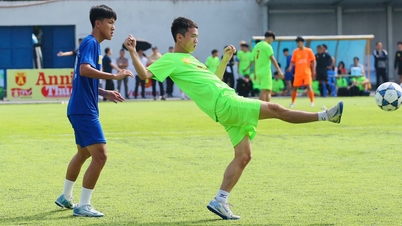
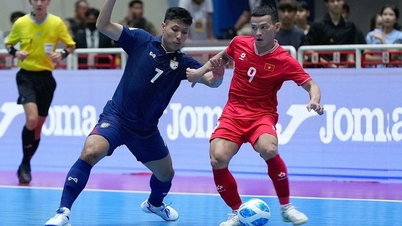

![[Photo] Panorama of the Patriotic Emulation Congress of Nhan Dan Newspaper for the period 2025-2030](https://vphoto.vietnam.vn/thumb/1200x675/vietnam/resource/IMAGE/2025/11/04/1762252775462_ndo_br_dhthiduayeuncbaond-6125-jpg.webp)




































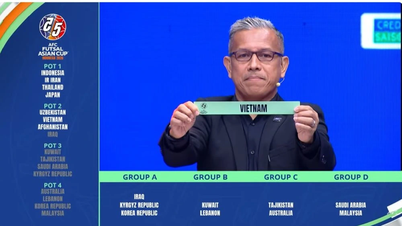
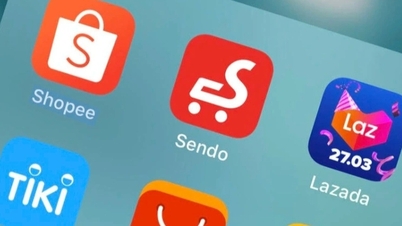












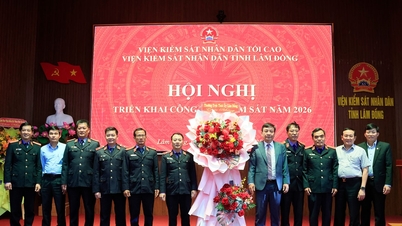






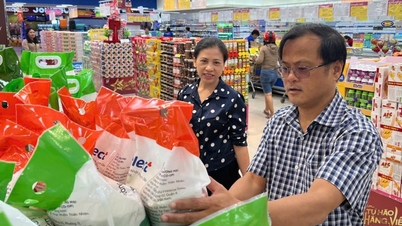
















Comment (0)